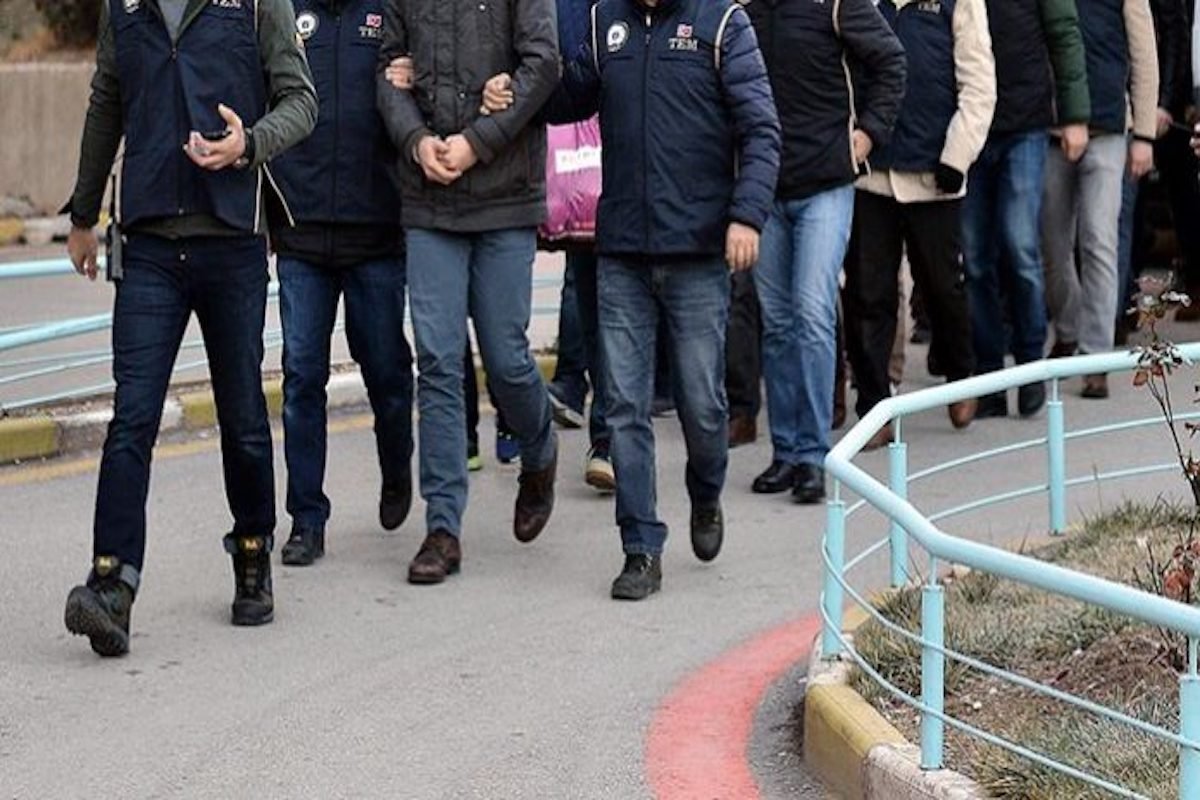Turkish prosecutors have over the past week ordered the detention of 127 people due to alleged links to the Gülen movement, according to Turkish media reports.
The public prosecutor’s office in Adana on Monday issued detention warrants for 75 individuals over alleged Gülen links. Police conducted operations across eight provinces to detain the suspects. The suspects were accused of providing financial assistance to the families of people who were jailed due to their alleged links to the movement.
Fifteen people were detained on Tuesday in police raids in eight provinces as part of an investigation by the Ankara Chief Public Prosecutor’s Office.
An additional 20 detention warrants were issued in Balıkesir and Gaziantep provinces during the week.
Turkish President Recep Tayyip Erdoğan has been targeting followers of the Gülen movement, inspired by Turkish Muslim cleric Fethullah Gülen, since the corruption investigations of December 17-25, 2013, which implicated then-prime minister Erdoğan, his family members and his inner circle.
Dismissing the investigations as a Gülenist coup and conspiracy against his government, Erdoğan designated the movement as a terrorist organization and began to target its members. He intensified the crackdown on the movement following an abortive putsch that he accused Gülen of masterminding. Gülen and the movement strongly deny involvement in the coup attempt or any terrorist activity.
The İstanbul Public Prosecutor’s Office on Tuesday issued detention warrants for 17 people on allegations that they used the ByLock smart phone application and deposited money at the now-closed Islamic lender Bank Asya. Fourteen of the suspects were detained in police operations across four provinces.
The ByLock messaging app, once widely available online, is considered by the government to be a tool of secret communication among supporters of the movement. The UN Human Rights Council’s Working Group on Arbitrary Detention (WGAD) has repeatedly stated that arrest and conviction based on ByLock use in Turkey violated Articles 19, 21 and 22 of the International Covenant on Civil and Political Rights.
Following the abortive putsch, the Turkish government declared a state of emergency and carried out a massive purge of state institutions under the pretext of an anti-coup fight. More than 130,000 public servants, including 4,156 judges and prosecutors, as well as 24,706 members of the armed forces, were summarily removed from their jobs for alleged membership in or relationships with “terrorist organizations” by emergency decree-laws subject to neither judicial nor parliamentary scrutiny.
In addition to the thousands who were jailed, scores of other Gülen movement followers had to flee Turkey to avoid the government crackdown.















